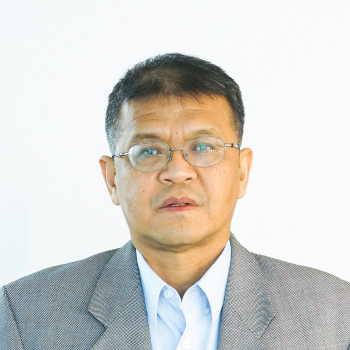TDRI
Research Program
Economic Sector Studies
Transportation and Logistic Policy
Our Work
Preparing a Road Safety Development Plan for 2022-2027
Road accidents cause over 500 billion baht in damage to life and property annually. Despite the efforts, road accident reduction has never reached the previously-set goal. This project proposed realistic goals for road accident reduction and means to achieve them by 2027 by preparing a Road Safety Development Plan for 2022 – 2027. We reviewed frameworks for operations on road accident reduction, gathered success factors of other countries, analysed relationships among traffic accident reduction plans in different government agencies, analysed the situation of road safety in Thailand, and held hearing sessions with related agencies throughout the country.
The study of annual vehicle tax measure to promote safe and environmentally friendly vehicles
This study aims to establish strategies for implementing road safety measures capable of addressing road accidents in vulnerable local areas. Its objectives include promoting the implementation of road safety measures at the local level, outlining possibilities for investing in initiatives supporting budget allocation, creating metrics for local road safety efforts aligning with the goals of the Road Safety Master Plan 2022-2027. Furthermore, it aims to bridge gaps in operations between provincial and local road safety centers. Additionally, it supports the execution of activities within the Road Safety Master Plan 2022-2027 at the local level.
A Study of Railway Regulations in Thailand
The lack of consistency and comprehensiveness in rail regulations greatly affects the efficiency of the rail systems and the quality of the services. This research analysed the national laws and regulations on rail operational systems of Thailand, the United Kingdom, Japan and the European Union, as well as international agreements concerning international logistics integration and cooperation. Also, it seeks to prepare the draft laws and regulations which establish common rail standards and to create effective law enforcement measures.
Economic Transformation Study and Modern Agricultural Policy
Our Work
Agricultural Transformation in Thailand
The paper, funded by the Food and Agriculture Organization of the United Nations, analyses the factors behind structural changes in the agriculture sector, the development of modern food value chains in Thailand and the role and impact of various institutional and policy reforms that affect this transformation. This paper concludes by identifying the challenging issues that must be addressed for the country to move forward in its agricultural transformation process and a detailed analysis of Thailand’s agricultural transformation at different stages in time.
Future of Small-scale Farmers
Small-scale farmers are increasingly vulnerable. The previous findings of smaller-scale farmers being more productive as they can use household labour instead of hired labour, thereby avoiding transaction costs, have been turned on its head. With the advent of modern technologies, large farms benefit from economies of scale in implementing cost-effective labour-saving equipment and can set up effective incentive systems for labour management. Thus, the future of small-scale farmers is highly uncertain and could be pivotal for society. This project was funded by the Strategic plan targeting Social KHONTHAI 4.0 NRCT.
The Needs of Farmers and the Possibility of Using Digital Technology to Increase Farms’ Productivity
Over 90% of small-scale farmers grow low-value crops: rice, cassava, sugar cane, and rubber. Funded by the Agricultural Research Development Agency, this paper aims to answer three questions:
1. How does productivity differ between small-scale farmers growing low-value crops (rice, cassava, sugar cane, rubber) and professional farmers?
2. Are small-scale farmer using modern technology to increse productivity and lower costs?
3. What role do agri-tech startups play in lowering costs and increasing the productivity and income of small-scale farmers?
Health and Agricultural Policy
Our Work
An Evaluation of, and Lessons Learned from, the National Science, Research and Innovation Fund's Response to the COVID-19 Crisis (2022)
An Evaluation of, and Lessons Learned from, the National Science, Research and Innovation Fund’s Response to the COVID-19 Crisis (2022).
A Study to Reform the Structure of Thailand’s Sugar and Cane Industry (2012) and A Consultation Study on Resolving the Dispute Settlement Concerning the Sugar Industry Between Brazil and Thailand in the WTO (2018 and 2021)
These projects received an Award for Outstanding Research in Economics in 2015 and an Award for Good Research in Economics in 2022 from the National Research Council of Thailand. The team leader was then nominated to serve as a member of the Ad-hoc Committee of the House of Representatives and the Ad-hoc Committee of the Senate in 2022 to consider the Sugarcane and Sugar Bill in 2020-2022.
Effects of Medical Tourism: Thailand’s Experience (2011)
This project points out that, despite its benefits, medical tourism in Thailand also has negative effects. However, the negative effects may be mitigated by lifting the restrictions on the importation of qualified foreign physicians and by taxing medical tourists who visit the country solely for the purpose of seeking medical treatment. The revenue thus generated could then be used to train physicians and retain medical school professors. This research received an Award for Good Research Work in Political Sciences and Public Administration in 2008 from the NRCT.
Environmental Policy
Business and Sustainable Development
Our Work
Exploring Thai Listed Companies’ Corporate Sustainability Reporting and the Stakeholder Involvement in Corporate Materiality Analysis
This project is funded by Capital Market Development Fund (CMDF) and involves content analysis of sustainability reporting practices of companies in SET100 from 2015-2021 and case studies of 10 selected companies from SET100. The results of this project would inform SET, SEC, and other interested stakeholders on the state of play of sustainability reporting in Thailand so that relevant policies and regulations can be developed. The case studies can be used by other organisations to make decisions on the development of their sustainability-related strategies, data collection procedures and disclosures.
Enhancing ESG disclosures of Thai listed companies
This project is initiated by the Stock Exchange of Thailand (SET) aiming to equip the participating companies with knowledge of sustainability management from the value chain and stakeholder analysis, materiality assessment to the disclosures of ESG information. While consulting firms have the role to provide such knowledge, TDRI has a role to independently observe the consulting process and provide recommendations to SET and the consultants. The results of this project would also inform SET and other related stakeholders on the key success factors and challenges of corporate sustainability management and ESG disclosure practices.
Green Development and Climate Policy
Our Work
Policy Options to Address PM2.5 Pollution in the Transportation and Automotive Industry
This project aimed to prevent and address the PM2.5 emissions in the automotive sector by evaluating the effectiveness of different PM2.5 alleviation measures and analysing their impacts on various stakeholders. We prioritised measures that showed clear efficacy in improving air quality and follows high environmental standards while maintaining a reasonable implementation cost.
Climate Change Impact Assessment on Children and Youth in Thailand
This study focused on analysing the impact of climate change on children and youth in Thailand. Under this project, we developed a child-sensitive climate risk map and developed policy recommendations to mitigate the risks and impacts of climate change on children and youth in Thailand.
Resource Sustainability and Mitigation Policy
Our Work
Forest Bond
Forest Bond is a financing mechanism which pools funding from citizens, corporations, and the stock market to regrow productive forests in areas which had been encroached. The party responsible for regrowing the forest will be a private entity with the capacity to grow and manage a large-scale productive forest. The income from the sales of timbers will then be paid as dividends to those that invest in the Forest Bond.
Marine and Coastal Resource Regeneration During COVID-19
The study shows a strong negative correlation between the number of tourists and the sighting of marine animals. That is, with the decline in the number of tourists, there has been an increase in marine animal sightings in all five study sites. This evidence indicates that if tourist activities can be controlled and well-managed, it can lead to healthier marine resources and sustainable marine resource management.
Integration of Natural Capital Accounting in Public and Private Sector Policy and Decision-making for Sustainable Landscapes
This ongoing project aims to facilitate the development of a Natural Capital accounting system in Thailand as a tool to measure the changes in the stock of natural capital at a variety of scales and integrate the value of ecosystem services into the national accounting and reporting systems. This will allow for the decision-making processes for both the public and private sectors to be made more sustainably as they consider the value of the environment.
Innovation and Education Policy
Education Reform Policy
Our Work
Revamping the Thai Education System: Quality for All
To succeed in a rapidly evolving world, Thai children must cultivate 21st-century skills such as critical thinking, problem-solving, collaboration, effective communication, and digital literacy. Unfortunately, Thailand’s current education system does not meet the standard of this changing world, mainly due to a lack of accountability in schools and universities. Our research suggests the system needs improvement in 5 key areas: core curriculum, student evaluation, teacher evaluation, school evaluation, and school financing.
Scaling-up Good Schools: Four Case Studies in The Thai Education System
PISA 2012 results revealed that some Thai schools, despite disadvantaged student backgrounds, achieved math scores above the national average. Scaling up successful practices from these schools nationwide can drive education reform in Thailand. Our results identify promising models, but implementation requires additional government and local support.
Redesigning the Education System Components in Education Reform Sandbox
This study, conducted in close collaboration with the Office of the Basic Education Commission (OBEC) and our partners, monitored and evaluated the performance of 3 schools in education sandboxes which are granted more autonomy to self-govern in 3 provinces: Sisaket, Rayong, and Satun. The results revealed some positive signs at both the school and student levels resulting in a new school funding formula, which will be applied to Thailand 2024’s budget.
Innovation Policy for Sustainable Development
Our Work
Restructuring the Science, Research and Innovation Ecosystem in Thailand
This study, conducted in close collaboration with the Office of National Higher Education, Science, Research, and Innovation Policy Council, investigated and recommended budget allocation and management strategies for promoting Thailand’s science, research, and innovation.
Plan for the Development of the Advertising, Architecture, Design, and Fashion Industries
We analysed the current state of these industries and identified key challenges and opportunities for their development in order to develop a comprehensive plan for Thailand’s Creative Economy Agency (CEA) to support their growth and international competitiveness. We proposed specific strategies and initiatives to encourage innovation, talent development, and market expansion, as well as recommendations for long-term growth in these industries.
Improving the Market for "Thai Innovation List" Products in Public Procurement
In collaboration with the National Bio, Circular, and Green (BCG) economy sub-committee on the medical device sector, our research team identified current challenges and barriers, as well as evaluated current policies and procedures in the government procurement market for “Thai Innovation List” products to increase their efficiency and effectiveness. We provided recommendations for improving the program’s effectiveness and promoting its growth through public procurement.
International Economics and Geopolitics
Geopolitics
Our Work
Geopolitical Risks of Thailand
This project will begin with a gathering of experts in Thailand to identify the 5 most important geopolitical risks in the country. This will set the agenda for research on Thailand’s geopolitical risk with an emphasis on the economic and developmental impacts of foreign policy, striving to encourage Thai foreign policy decision-makers to prioritise these considerations.
Analysis of Energy Security Risks in Thailand from Geopolitics
Thailand heavily relies on energy imports, with 17-20% of the country’s energy coming from Myanmar alone. As a result, the country has energy security risks from geopolitical factors and changes in neighbouring countries’ politics. This project aims to analyse such risks and suggest appropriate options for reducing them.
Conflict Between the US and China
The conflict between the United States and China has a high impact on global politics and the global economy, such as causing the shift of industrial production bases to ASEAN countries, including Thailand. This project will track the trend of this conflict and study the stance of Thailand’s foreign policy in order to make informed economic policy considerations.
International Economics and Development Policy
Our Work
Effects of the Thailand-European Union FTA and the Appropriate Negotiation Framework for Thailand
Assessing the possible positive and negative effects of the Thailand-EU FTA on the Thai economy and recommending appropriate policy measures for economic structural adjustment
Effects of the ASEAN+3 and ASEAN+6 FTAs and the Appropriate Negotiation Framework for Thailand
Assessing the possible positive and negative effects of each alternative ASEAN negotiation framework on the Thai economy and recommending the appropriate negotiation framework as well as policy measures for economic structural adjustment
Impact Assessment of Regional Comprehensive Economic Partnership (RCEP) and Exploring an Appropriate Negotiation Option for Thailand
Assessing the possible positive and negative effects of RCEP, including trade in goods and services, investment, trade facilitation, intellectual property rights, labour, environment, government procurement, e-commerce, competition policy etc. and recommending appropriate negotiation options as well as structural adjustment measures
Labor and Welfare Policy
Labor Market Analytics
Our Work
Labour Market Condition Index
This project constructs an index, using an advanced econometric method, to gauge labour market conditions, especially the slack (the shortfall between the workers’ desired amount of work and the amount of paid work available) and tightness (a tight labour market is one in which demand for labour is at least as strong as supply).
A Portrait of High-income Thailand: Future Labour Market Outlook
We propose a framework for Thailand to escape the middle-income trap and achieve high-income status through labour market improvement.
Inclusive Development Policy
Our Work
Universal Child Support Grant
One of our impactful research projects is the study on the impact of child support grants in Thailand, which subsidises over two million poor Thai children. We are currently working closely with UNICEF and civil society to make the program universal so that no one child is left behind.
Lost Opportunities for Teenage Mothers and Thailand
Thailand is one of the countries with the highest rate of teenage pregnancy. This study examines the socio-economic background of teenage mothers and how teenage pregnancy would affect their future earnings given their circumstances, and, in the bigger picture, the opportunity cost teenage pregnancy has on Thailand. This paper tries to solve this issue by recommending policies to reduce teenage pregnancies and increase opportunities for current teenage mothers.
A Study on the Impacts of COVID-19 on Thai Society and Economy
In collaboration with the National Research Office (NRO), we assessed the impact COVID-19 has on Thai society and the economy. This study focuses on three key areas: health, economic, and social policy. We consolidated this knowledge and used them to formulate improved policies to handle future outbreaks.
Law
Law for Development
Our Work
Personal data protection law
Our team contributed to drafting personal data protection law guidelines by interviewing stakeholders and company representatives from seven industries and conducting public hearings from stakeholders to gather opinions.
Access to Justice and the Justice System
A study of the issues related to the justice process and costs of criminal justice, conducted by evaluating court fees, justice funds and legal aid.
Competition Law
This research evaluates the impact of competition laws on businesses and consumers and offers recommendations for enhancing the enforcement efficacy to better serve all parties involved.
Law Reform
Our Work
Regulatory Guillotine
We have provided comprehensive advice and worked along with several Thai governmental authorities in reviewing and reforming many old laws and regulations for each authority. Some of our past working partners include the Office of the Trade and Competition Commission of Thailand, the Security and Exchange Commission of Thailand and the Bangkok Metropolitan Administration.
Technology law
We have assisted the Office of Small and Medium Enterprises of Thailand and the Asia Foundation in reviewing the current Thai legal regimes and identifying the legal problems that obstruct Start-Up businesses in Thailand. We have also provided advice on how to develop better laws and regulations to effectively promote Start-Ups.
Digital Law and Infrastructure Regulation
Our Work
A project on drafting laws and assessing the impact of draft laws on the application of artificial intelligence.
The project is focused on navigating the global currents in AI regulation, with the goal of formulating forward-thinking, innovation-friendly regulatory recommendations for Thailand. This initiative is designed to ensure that the development of artificial intelligence is not only progressive but also thoroughly considers potential risks. Additionally, the project is a crucial preparatory step for the execution of Thailand’s National Artificial Intelligence Action Plan (2022-2027), a strategic framework aimed at guiding the country’s development in the realm of AI over the coming six years.
A study to improve the National Standardization Act B.E. 2551 (2008)
The National Standards Act B.E. 2551, in effect for over 14 years, serves as a cornerstone in promoting the development of standards and conformity assessments related to accreditation, testing, calibration laboratories, certification bodies, and inspection bodies. This law is instrumental in guaranteeing the reliability of product and service inspection and certification results, which are pivotal for market surveillance aligned with international norms. Given its critical role, there’s a pressing need to refine this legislation to further streamline the National Quality Infrastructure (NQI) and establish a more systematic administrative mechanism. This enhancement is crucial for ensuring that the framework not only meets current demands but also adapts effectively to future challenges.
Policy Development for Permitting Foreign Non-communication NGSO (Non-geostationary Orbit) Satellites to Provide Services Within the Country
As the usage of foreign non-geostationary satellite orbits (NGSO) surges, it becomes evident that existing policies, primarily focused on communication satellites, are no longer adequate. To bridge this policy gap, we conducted an in-depth analysis of the social and economic implications of allowing foreign NGSO operations within Thailand. Our findings led to the proposal of a refined model for orbit access management and the establishment of clear licensing criteria for satellite orbits. Additionally, we put forward strategic recommendations aimed at maximizing the utilization of space technology for Thailand’s benefit. These recommendations are designed to ensure that the country can effectively harness the opportunities presented by the digital economy, leveraging advancements in satellite technology for sustainable growth and development.
Research Methodology
Big Data
Our Work
Analysis of Online Job Postings
It is often said that Thailand lacks workers due to a sustained low birth rate. However, in reality, many university and educational institution graduates struggle to find well-paid work and employers often complain that these new graduates do not possess the skills required. This project aims to address this problem by collecting data from over 10 job websites and analysing the trend of skills required by employers using machine learning and natural language processing. This will help universities and educational institutions to adjust their curriculum and teaching methods to meet the market demand
Using AI to Analyse ESG Reports of Publicly Listed Companies
Companies registered in the Stock Exchange of Thailand (SET) must submit their annual ESG report to show their business conducts related to Environmental, Social and Governance (ESG) factors. TDRI has so far used researchers to read and analyse these ESG reports, which is a labour-intensive process. This project aims to use AI to assist our researchers in analysing ESG reports to save time and effort.
Productivity Improvement by Using Generative AI
Generative AI, as demonstrated by ChatGPT, is a technological innovation in AI that has great potential for increasing the productivity of knowledge workers. This project will explore the use of ChatGPT to enhance the productivity of TDRI’s policy research. Furthermore, we will analyse the potential of the technology to enhance the capabilities of Thai people to work at the international level.
Macroeconomic Policy and Applied Economics
Our Work
Enhancing Efficiency and Competitiveness of the Thai Capital Market
This research project studies the factors affecting Thailand’s capital market and measures to take to improve the efficiency and competitiveness of Thailand’s capital market. This includes building a model measuring the effects of cost and tax on the efficiency of the capital market and on real economic indicators.
A Study on the Trade Potential of Thailand-Laos Border Checkpoints
The objective of this study is to employ economic methods to evaluate and rank Thailand-Laos Border checkpoints, comparing their trade volume and international investment potentials.






































Social Development Policy
Our work covers various social issues ranging from the rights and welfare of vulnerable groups, such as children and migrant workers, to gender inequality, and to social investment.
Our work covers various social issues ranging from the rights and welfare of vulnerable groups, such as children and migrant workers, to gender inequality, and to social investment.
“Solving social development issues is like a marathon race. It may take a long time to reach the finishing line, but you will always be running together with the people who share the same goal.”
- Dr. Boonwara Sumano -
“Solving social development issues is like a marathon race. It may take a long time to reach the finishing line, but you will always be running together with the people who share the same goal.”
- Dr. Boonwara Sumano -
Our Work
ASEAN Declaration on Portability of Social Security Benefits for Migrant Workers in ASEAN
This action-oriented research aims to find the practical, step-by-step approach for ASEAN to make social security benefits portable between member states through bilateral social security agreements (SSA). The methodology includes workshops, and in-depth discussions with the potential countries.
Gender-sensitive labour inspection manual
Labour inspection is a mechanism to ensure labour protection. We revised the manual for labour inspectors to be able to identify gender-sensitive issues at workplaces.
See More
Social Impact Bond for early childhood development
This is the first-ever pay-for-success model in Thailand supported by the Equitable Education Fund (EEF). In this upcoming project, our team will take the role of monitoring and evaluating the pay-for-success model.